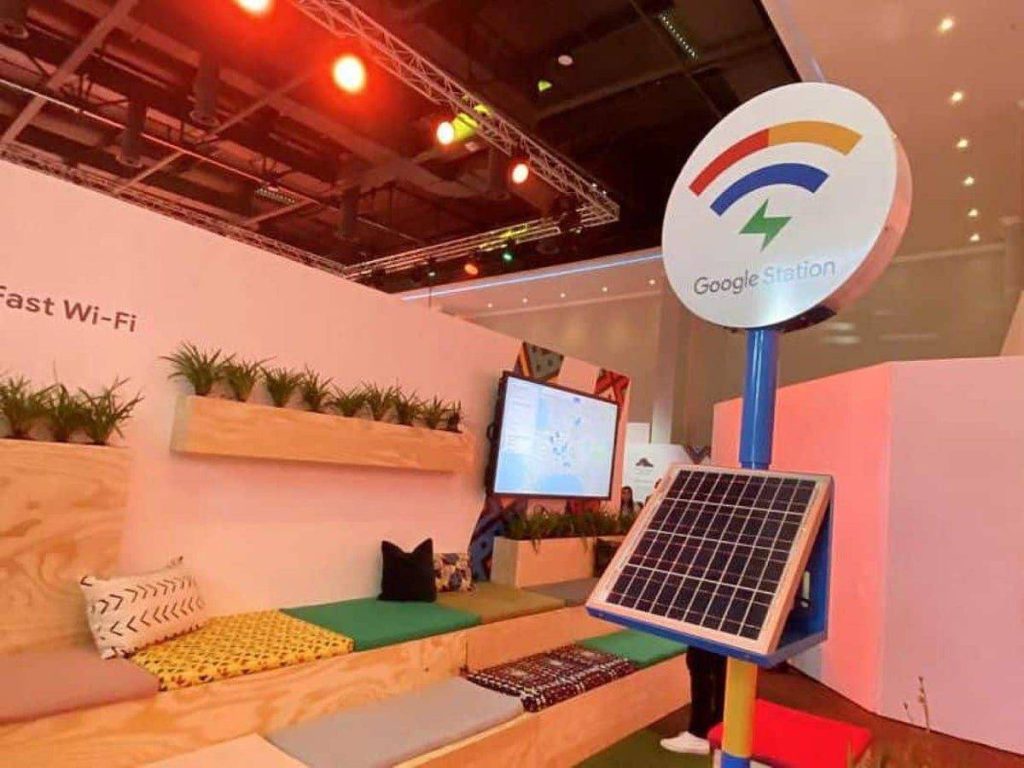Logging Off Google Wi-Fi Station Is Actually A Necessary Call With A Silver Lining

It’s not the first time the American multinational technology company is truncating a product with an initial glory, but the winding down of Google Station was not a development everyone expected.
Google made it quite clear they wanted to bring more people online in different parts of the world with the free Wi-Fi service. One may think they’re only going back on that decision and dumping Station in the Google Graveyard.
But this rather controversial development comes with a silver lining, especially in places that had a prior low amount of people connected to the internet.
Premonition
Not everyone saw the wind down coming, but the signs were there. The first off the Wi-Fi forecast hit Lagos when Google Station went offline at the Ikeja City Mall. Considering just about how many people the service had enabled to surf the internet, it was a bummer for most to learn it had issues.
Though there were connection issues in other locations such as Computer Village – an unofficial tech district in Lagos – Google seemed bullish by rolling out the service in South Africa just three months ago. It also replicated the efforts in other parts outside Africa, even Thailand.
When the firm came brandishing free Wi-Fi in Nigeria, it made known it wanted to cover 200 locations in the country by 2019. But those ambitions came up short as Lagos and Abuja only got Station’s coverage, accounting for significantly fewer locations.
In India, the service was challenged by Mukesh Ambani, the country’ wealthiest man, one year after it was launched. The telecom network, Reliance Jio, offered Indians a heckload of 4G data packages free of charge, occasioning an extended competition that cajoled other operators into slashing their tarrifs.
Mission Accomplished But What Changed?
Google wanted to bring millions of people online for the first time – and it succeeded. In India, for example, Google Station rolled out in over 400 railway stations in India. In other parts of the world, it launched thousands, working alongside a number of partners.
But as the company says it’s going to recall all efforts this year, it should be easy to see how this is typical of a business call. 2020 makes it 4 years Google Station first saw the light of day, but providers may have gotten themselves into a self-dug hole in which there’s no gold.
By providing free Wi-Fi access, Google inadvertently made telecom companies rethink the data bundles they offer – the India case, for example. Station came when most places were still struggling to attain 4G status, but now the fourth-generation has become a mainstay.
A Google spokesperson told WeeTracker that Google is humbled that its work has been able to help millions of people experience the power of the internet for the first time, which falls neatly in line with its mission.
“However the eco-system has evolved since then – 4G is getting prevalent in a number of markets and data prices are dropping globally. This combined with the complex and varying technical requirements across partners and countries makes it a challenge to scale and sustain Station”, the person said.
Now, The Silver Lining

Is data costly in, say, Nigeria? The answer you’d get depends on who you ask. But the fact remains that compared to other African countries like Kenya, Africa’s largest economy is actually selling internet bundles at a fair price. However, ever since Google Station debuted in 2018, nothing much has changed.
But other things have changed. Despite users’ inability to use the service unless they’re around select positions, internet penetration in Nigeria has grown dramatically. To be fair, Google should be one of the people receiving the most thanks for this. As said, they made it possible for people to experience the power of the internet.
Google, having done its bit, is closing up the Station shop because it could not make money from it. But its existence so far has significantly affected the way Nigerians – and other people – perceive the internet. It also has telling signs on how telcos have stepped up their game by boosting network coverage across the country, which makes sense when looked at competition-wise.
The experience and exposure will always be there. Moreover, Google says that it’s still working with its partners such as 21st Century Technologies (Lagos) and Backbone Connectivity Network (Abuja) support users and enable them transition. We remain committed to look for ways to make the internet more accessible for users around the world, the firm says.
Station itself is helpful, but Africans probably do not want it own by a foreign company due to privacy of data and the numerous concerns that comes with digital colonization. If the service will keep running, then it may give people more peace of mind using it under a provider they know.
More Access
For Google to reckon that 4G is getting better means it actually is. Despite speculations, the same is the case in Africa, which now adjusts to roll out 5G. RaiTel, the state-owned telecom infrastructure provider Google partnered in India, told TechCrunch that it will continue servicing free Wi-Fi in the railway stations.
Google told WeeTracker that it is unable to confirm whether the partners in Nigeria will follow suit. Internal consultations are ongoing to decide the future of the service
So far, nonetheless, they ought to have gotten to grips with how to better serve Nigerians and increase internet penetration. Google may have also set an example for telcos, who should have picked up a thing or two regarding high-speed connectivity.
Another main reason Station is going under is that data is becoming cheap in many countries, thanks, in part, to Google. The service, although present in only 2 African countries, has contributed to the fall in internet prices. Except providers decide to milk the shutdown for what it’s worth, data will only get cheaper.
So it’s not far fetched to say Google has played a significant role in internet penetration and data cost reduction in Nigeria and South Africa. As the plug will be pulled through 2020, it’s only expected that service providers carry on the legacy – and more.